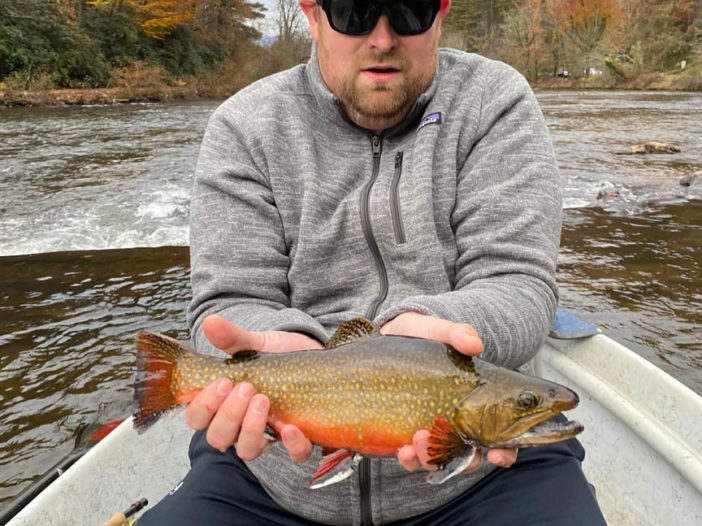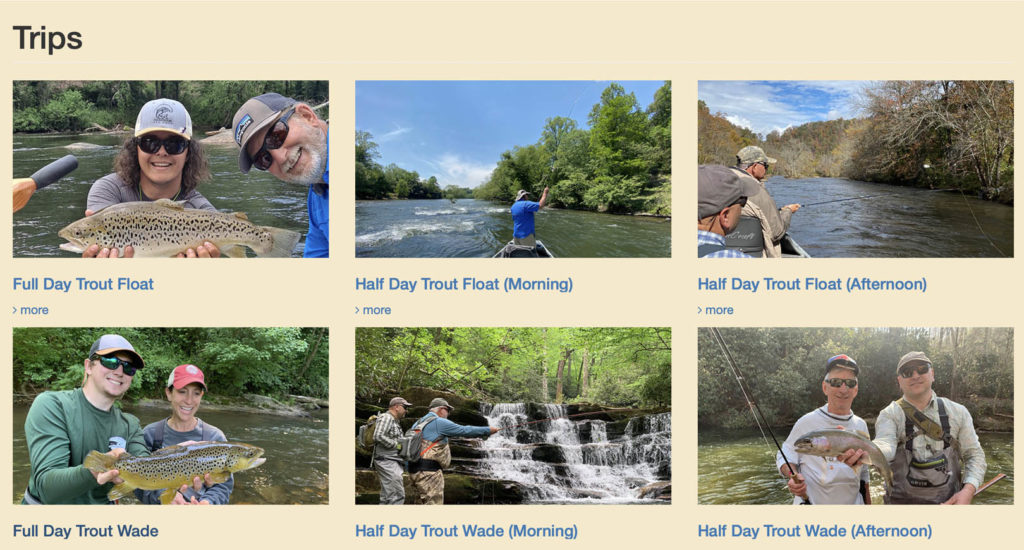
We get a questions from customers about our guide trips nearly every day. Below are answers to the most common inquiries.
What time do we start? And where do I meet the guide?
We usually start around 8 a.m., but the start, of course, is determined by the weather and water temperature. In the summer, we may start much earlier; in the winter, we could start much later in the morning. The guide will call you the night before to pinpoint where to meet, usually at one of our three locations — in downtown Sylva, Bryson City and Waynesville.
What do I need to bring?
A North Carolina inland fishing license is a must. You can order one online or stop by the shop prior to your trip. Other things you might want to pack: sunscreen; a hat; sunglasses; and a gratuity for the guide, which is optional, but nevertheless appreciated. We provide all of the equipment, water and, on full-day trips, lunch.
What type of fish do we try to catch?
Trout is the name of the game. Brown, brook and rainbows are the main species. Smallmouth bass are also a possibility.
Can I fish the Tuckaseegee?
Yes. How you fish it depends on the dam releases from Duke Energy. If Duke releases water, wading may be limited, and a float trip will be the best option to fish the Tuck. We offer full and half–day floats.
Do you require a deposit?
Yes. Fifty-percent of the cost of the trip is required to reserve your spot. We try to fish rain or shine. However, if the guide deems the conditions to be unsafe, we will try to reschedule.

When is the best time of year to fish?
That depends on weather conditions, but spring and fall are generally the best time to fish in Western North Carolina.
When is the best time to fish the Tuckaseegee?
Fall and spring. The state of North Carolina stocks the Tuck several times a year, which creates opportunities for quality fishing. Stretches of the river —- in Sylva and Bryson City — are classified as delayed harvest, which essentially means catch-and-release fishing from October until early June. Once the delayed-harvest season ends, the water temperatures rise, and the Tuck trout fishing becomes difficult. Once summer arrives, we focus on the higher-elevation mountain streams.
Can I take a fish home to eat?
All of our guides practice catch-and-release. You catch it; we release it to fight another day.
Note from Editor: You can certainly book these trips online at your convenience. If you have any questions don’t hesitate to reach out.

